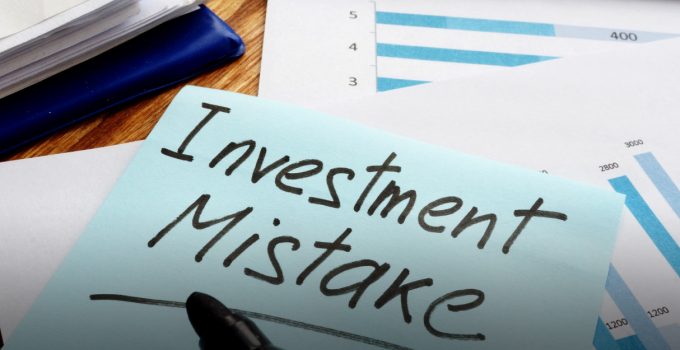Everyone is getting into investing these days. It is true that the percentage of individual investors in U.S equity trading volume has risen to 4% in 2020. Events like the GameStop short squeeze, early 2021, have attracted even more attention.
It’s important to realize that investing is a risky business. However, you can learn from others’ mistakes and avoid making the same mistakes. This will help you gain confidence in investing and give you positive momentum to reach your long-term goals.
These tips will help you avoid some common mistakes when investing.
Make No. 1. Don’t put all your eggs into one basket
It is said that variety is the best spice in life. Diversification is a key to a healthy portfolio. It’s also a way of helping reduce the stress caused by market volatility. Avoiding too much money in one asset or company is what you want to avoid. This has led to many investors’ financial woes. It doesn’t matter if one asset in your portfolio fails to perform if you have a properly diversified portfolio.
Diversification used to mean a mixture of bonds and stocks. Brian Ford, Truist’s head for financial wellness, says that investing in mutual funds and exchange-traded funds is a great way to diversify.
These funds are compiled by teams of professionals who take the guesswork out when it comes to picking stocks. Diversification is easy by selecting a range of funds. These funds can be focused on large or small companies (often called small-cap or big-cap stocks), foreign stocks or specific sectors like energy and consumer goods. ETFs like those that are benchmarked to S&P 500 are very popular because of their steady, consistent growth.
Make No. 2: Thinking big
Play the long game when investing. It is important to understand why you are investing and to keep your eyes on the long-term.
Ford says that when COVID-19 was announced and the market plunged, our natural instinct was to cut our losses and sell. This kind of short-term thinking could have put an investor in a difficult position in 2020. However, the market experienced a remarkable upturn. Ford advises not to focus on immediate returns but on where you might be in a few years or later.
Bright Dickson, Truist’s resident expert in positive psychology, suggests that you should consider what you’re Eden for . If you are passionate about conservation and climate change, you might consider investing in environmental, social and governance (ESG).
She says, “Money is just a conduit to our true desires in life. So keep your eyes on those goals and values.”
It is the number one mistake 3: Letting emotions drive decision-making
Ford warns that emotions and investing are not compatible.
People see the market soaring and “get financial FOMO”–they buy at high prices to avoid missing out on the fun.
However, some people might see the market plummeting and decide to sell . This is usually counterproductive in the long-term.
To avoid the common investment mistake of making emotional decisions, acknowledge your emotions, accept them, and then work with calmer or more positive people. It might be worth focusing on your portfolio more often. Remember that the market will have its peaks and valleys. Don’t get discouraged if you make a mistake, such as buying a stock/fund at a high price only to see it fall.
Dickson suggests that instead of dwelling on your shortcomings, you should identify negative self-talk and ask yourself: “Can I learn from it instead of being angry with myself?”
The number one mistake 4. Investing inconsistently
The race is won by being steady and slow. Ford suggests that you don’t worry about the market’s ups and downs, but instead, focus on a consistent investment strategy such as dollar-cost average. Dollar-cost averaging allows you to invest a set amount of money in the market at regular intervals such as weekly or biweekly.
Ford states that this means you should put money in your 401(k) each month, no matter how the market is doing. This allows you to avoid selling or emotional buying, as you are consistently putting money into your 401(k) every month, regardless of whether the market’s overheated, overpriced, or undervalued.
It’s impossible to predict what the market will do next month. However, by investing regularly, you can buy both the ups as well as the downs. This helps reduce the investment cost.
Make No. 5. Not speaking with experts
Working with a trusted advisor, such as a financial adviser, can help you avoid making costly mistakes in investing.
Ford states, “Everyone has to have a coach – the best athletes in the world have coaches.” A financial advisor will not give you the answers or do all the work, but they will provide some guidance. Your financial advisor will remind you to be calm and focused on the long-term when you feel like you are losing your mind due to the market downturn.
Investing can be a great way to build financial confidence. This can have a direct effect on your overall health. These tips will make it easier to invest.



